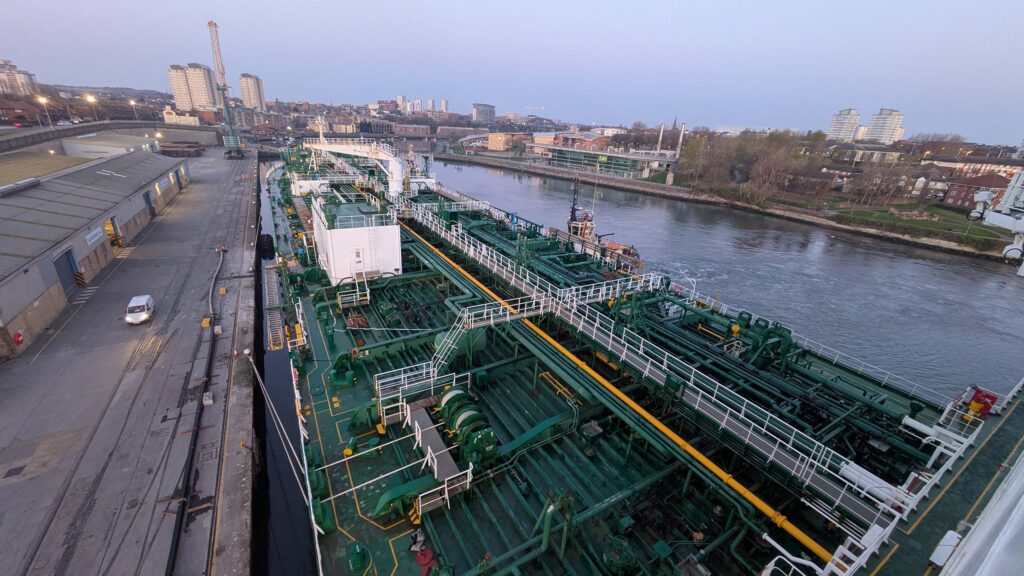Fertiliser shortage hits farms as spring demand picks up
 Brineflow's Nitrosol terminal in Sunderland © Brineflow
Brineflow's Nitrosol terminal in Sunderland © Brineflow Extremely tight supplies of fertiliser in the UK and strong seasonal demand have left farm businesses scrambling for inputs and facing lengthy delivery delays, with some orders not being fulfilled on time.
Some agricultural enterprises are even calling for compensation for crop losses, with reduced yields expected as a result of delayed orders.
See also: US tariffs hit fuel and fertiliser markets
Drier weather conditions, the sudden closure of the Sustainable Farming Incentive to new applications, an over-reliance on imported products, and delays in orders have all been suggested as factors behind the shortage.
Dominic Edmond, an agronomist at Matford Arable Systems, told Farmers Weekly it did not just involve one supplier or one area – it seems to be a nationwide problem, and some of his clients had faced two-month delays for deliveries on farm.
The Agricultural Industries Confederation (AIC) said demand had lifted by more than 20%, equating to an additional £80m of stock that has had to be sourced from abroad.
Jo Gilbertson, head of fertiliser at the AIC, said this was equivalent to 200 additional days at processing plants and 8,000 extra deliveries onto farm.
He added that there had been an absence of forward orders at the end of last year, when farmer confidence was particularly low. Since then, however, there had been a complete turnaround in market dynamics.
Mr Gilbertson said: “The distribution system is under a lot of strain at the moment. It’s a case of unprecedented demand and a heavy reliance on imported material.
“We are in the same position as everybody else. We can’t get fertiliser from our shortest supply routes [in Europe], because they are also struggling, so we have got to get it from further afield.”
Liquid market
Some suppliers of liquid fertiliser products appear to have fared better, with regular shipments helping to maintain stocking levels and fulfil orders.
Liquid fertiliser importer Brineflow received a major shipment to its Nitrasol North Terminal in Sunderland on 12 April.
Lord Fuller, chairman of Brineflow, said the firm had been taking orders from businesses that could not wait until May for alternative supplies.
He said: “There have been critical shortages of nitrogen this spring.
“Delays in shipping, delays in ordering and a resistance by the trade to being left holding the baby in the summer reset have all contributed to the tight market.
“We have been fully stocked throughout thanks to our offtake agreements and strategic storage capacity and have maintained deliveries in a relentless spring campaign uninterrupted by rainfall.”
Prices on the up
GB fertiliser prices, collected by the AHDB, put UK ammonium nitrate at £380/t in March, up by £41/t on the same month last year, for a full load on standard 28-day payment terms delivered in bags to farm.
The cost of imported ammonium nitrate has increased by £25/t since the start of the year and stood at £354/t in March.
Meanwhile, granular urea and potash MOP lifted to £432/t and £341/t, respectively.
